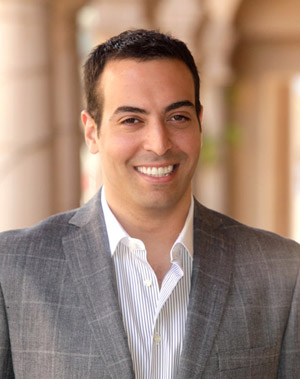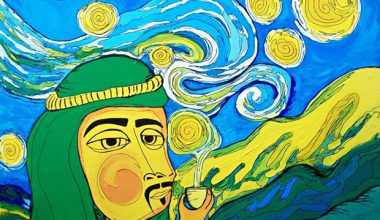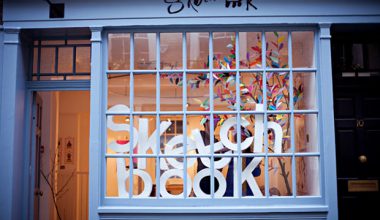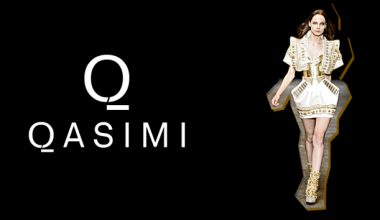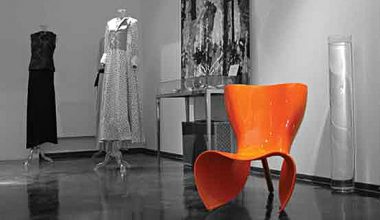 Making impressive moves in the very competitive Hollywood scene, Mohammed Al Turki is quickly cementing himself as an ambitious producer, actor and philanthropist in the industry. Born in Saudi Arabia and educated in London, Al Turki's call to film caused him to move to Hollywood and launch his career from there.
Making impressive moves in the very competitive Hollywood scene, Mohammed Al Turki is quickly cementing himself as an ambitious producer, actor and philanthropist in the industry. Born in Saudi Arabia and educated in London, Al Turki's call to film caused him to move to Hollywood and launch his career from there.
Al Turki's first film, "The Imperialists Are Still Alive!", starring French Actress Elodie Bouchez, was "Official Selection" in Sundance 2010. It won "Best Film" both at the Warsaw Film Festival and The Asian American Film Festival. His second film endeavour, "The Harrowing", in which he stars, is a reality-based horror story based on a group of young people trapped in a haunted mental asylum, with CCTV cameras filming the cast's every move. "The Harrowing" is due for release in the fall of 2011. His latest projects include "Arbitrage", bringing together an all-star cast that includes Richard Gere, Susan Sarandon, Tim Roth, Sundance sensation Brit Marling and French favourite Laetitia Casta; touching documentary ‘Metamorphosis’, focusing on teenage suicide in the US, narrated by James Franco and directed by Lacey Dorn, and, most recently announced during this year's Cannes Film Festival, the Ramin Bahrani project starring Dennis Quaid and Zac Efron.
Khaleejesque got the chance to go behind the scenes of Mohammed Al Turki's exciting career and find out more about what it takes to survive in Hollywood's film industry.
How did you first get into the industry?
Film has always been a passion. I studied film while in university in London, I lived for film, but never imagined I would pursue it as a full time career. It was more of a far fetched dream. As soon I graduated I worked in an oil and gas company, took a holiday one year and was introduced to Zeina Durra, a British based movie director. Soon enough we were working together on my first project, "The Imperialists Are Still Alive!". I jumped in, and my journey began.
Seeing that you are a Saudi, was it hard or easy being accepted into the Western media scene?
I'm very proud of my heritage and proud to be Saudi, but yes, being Saudi can also be quite the obstacle in Hollywood. People sometimes go into this weird state of ignorant shock when I tell them where I'm from! I've met many high profile movers and shakers in the film industry, in fashion and music too, some of whom have become good friends, but every now and again I do get the odd startle. They look at me surprised and dismayed that I, a Saudi, am actually creative, westernized and carry a wealth of film knowledge. It's shocking to them, that I am (in their word) "normal"!
Saying that, acceptance is all primarily down to connection, I have many good friends in Hollywood and my heritage is also a novelty. It's all about one's own approach and how you choose to positively work/put forward with what you have, with pride!
How has the Hollywood producing experience been for you? Any tips for upcoming movie producers?
So far, so great. I have been to many festivals where I've had the opportunity to meet with a number of the industry's heavyweights and share ideas and concepts. I also work closely with various charities; most recently I joined forces with "Cinema for Peace", a fantastic initiative raising funds and awareness for those effected by war, which I will co-host during the Golden Globes next January. Thus far my productions have allowed for me to work with Cannes Jury member Elodie Bouchez, Oscar winner Susan Sarandon, Hollywood legend Richard Gere, and many more inspiring individuals. It's all been the ultimate experience for me, and blessing.
I'm also excited about a forthcoming documentary I have in the works, narrated by James Franco and titled "Metamorphosis". It speaks of an important and real life issue. This is key for me; I like films that are made to raise awareness on real issues, with genuine cause. As for tips for upcoming producers: Simply, don't work on political projects! In this day and age I believe it wiser to stick to truth and cause.
How would you describe your production style? What are your favorite genres and movies?
A great movie relies on great direction, so for me, along with a great cast and a great script, a great director is imperative. The cast often changes the value of the film based on foreign sales and box office too. I don't have a favorite genre. I'm a film buff. I care about the film carrying a message, in a highly entertaining and inspiring manner.

What would you say was your breakthrough moment?
I value my film and philanthropy work on equal levels, so can safely say I've had two breakthrough moments in each line of work: the first, was when I stood up on stage in LA, with actress and friend, Michelle Rodriguez, to introduce my first film "The Imperialists Are Still Alive!" in front of an invited audience during our West coast premiere. Another breakthrough moment was hosting the "Sea Shepard" event in Cannes. The Steve Irwin vessel had come to Cannes for the festival and we raised funds to continue their amazing work for the environment. My first film winning in 3 film festivals' Best Film category, that was another series of major moments for me, and announcing our Ramin Bahrani project during this year's Cannes Film Festival, starring Zac Efron!
Who in the film industry do you look up to?
Lawrence Bender, who I'm actually meeting with this month. He produced The Kill Bill Series, Pulp Fiction, Inglorious Bastards and Reservoir Dogs, to name a few.
What would your dream project be? And who would be your dream cast?
My dream project would be to work with either Steven Spielberg, Martin Scorsese or Christopher Nolan, with an all-star cast including Jack Nicholson and Meryl Streep.
Do you have plans of creating a project about and in the Arab region?
Not for the time being. My first project, as a comedy with political satire, did link itself culturally to the Arab region via the main character's heritage, who was a French girl with Middle Eastern origins (Palestinian, Jordanian, Bosnian) living in NYC post 9/11. This is considered a relative topic, or 'issue', that represents many people from our region. It's also niche, as are most films with strong political/cultural connotations. For example, "Miral" directed by Oscar contender, Julian Shnabel, was about a Palestinian. It was essentially a "pro Arab" film. It had both a great message and great ensemble cast led by Frieda Pinto, of "Slumdog Millionaire". But, the film was released in limited cinemas across NYC and LA. It completely vanished in no time, even with its buzz and massive press attention, it remained niche. I need to now focus on what is commercially appealing and reach a level of influence where I know I can produce whatever I want, niche or not, and receive the commercial awareness regardless.
What would you say to people who are thinking of pursuing film production as a career?
It's great, but you should always have a back up plan. A clean slate exit strategy. Be very selective with your projects, and make friends with everyone in the industry. Connections are key!
What was your favorite project and why?
I don't have a favorite, I thoroughly enjoyed each and every project, equally. Working as an actor in "The Harrowing" was particularly interesting though, locked up in a haunted mental asylum for 3 days while being monitored on CCTV cameras! The stress of working behind the camera was wavered by being talent in a film.
What do you think of the film industry in the Arab region? How in your opinion could it better be developed?
There’s certainly a promising future. ‘City of Life’ was one of Dubai’s mainstream recognizable features which broke boundaries in my view. Ali Mostafa, who directed the movie, is a great example of what this region can produce in terms of talent. I know plenty of film students based in the across the UAE and the Gulf making very impressive moves. International film festivals taking place all over the region is garnering attention to the Middle East and what this region has to offer too.

